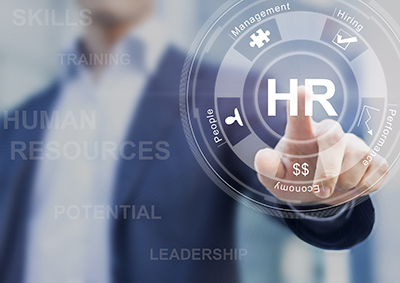You’re probably familiar with the safety announcement on flights about how if the cabin loses pressure, you should secure your own oxygen mask before assisting others. This routine announcement is a good reminder of the importance of self-care, something that’s more critical for HR professionals than ever.
According to a recent report from Paychex, 98% of HR leaders say that COVID-19 transformed their roles due to an increased emphasis on workforce health and safety, employee mental health, and the need for technology that keeps teams connected. And let’s not forget the efforts HR teams have made toward addressing racial inequities. All this helps to explain why 70% of respondents to the Paychex report say 2021 has been one of the most challenging years in their careers.
If ever there were a time to begin incorporating mindfulness practices into your day, it’s now.
By focusing on developing mindfulness techniques, you’ll be able to better navigate the challenges ahead. Take a look at how mindfulness can benefit you and your employees, and learn how to start incorporating it into your workdays.
Understanding How Mindfulness Helps Reduce Stress and Burnout
As the Association for Psychological Science explains, burnout emerges when workplace demands and stress exceed your rewards, accomplishments, and all the other elements that typically help you cope. As it turns out, mindfulness is one of the most powerful tools you can use to combat this. Studies show mindfulness-based therapy effectively reduces stress, anxiety, and even depression.
Researchers have also taken a look at digital mindfulness tools. So far, results show that meditation apps can strengthen mental health when used regularly. On top of that, there’s evidence to suggest that Web-based mindfulness tools can help alleviate symptoms for a variety of health conditions.
Practicing mindfulness can even improve your performance at work, particularly as it relates to collaboration and productivity. This is an incredibly important reminder that self-care allows you to better support your people.
Exploring Mindfulness Techniques and Tools You Can Utilize
There is no shortage of options when it comes to how you can practice mindfulness, but consider these options:
Gratitude practices—Reflecting on the good in your life can help bolster the positive relationships you already have and help you gain perspective. You can incorporate gratitude into your days in many ways, such as by journaling, writing a letter, or creating some sort of visual reminder.
Breathing techniques—According to Harvard Health Publishing, just observing your breath can reduce stress. Try this technique by finding a quiet place to sit, then count your inhalations and exhalations for 10 or so minutes.
Guided meditations—Guided meditation is a practice facilitated by an instructor, which includes sessions that are in person, those conducted in real time via video, and on-demand sessions that are prerecorded.
Walking—If sitting still with your thoughts is difficult, consider a walking meditation instead. This mindfulness practice entails maintaining awareness of your steps, as well as your breathing.
Apps and platforms—Today’s mindfulness apps have come a long way when it comes to supporting mental health. You might also consider an all-encompassing digital wellness platform that can provide access to all the techniques mentioned here and more. Some even allow you to connect one-on-one with certified wellness coaches who can offer guidance and help you set goals.
Recognizing the Importance of Mindfulness for You and Your Organization
Bear in mind that mindfulness need not be a solitary practice—there are many ways to incorporate mindfulness into the workplace to help benefit everyone on your team.
As for how to integrate mindfulness into your organization, start by setting an example. Show employees that it’s not only accepted but also encouraged to take time for yourself.
It’s also crucial to think about how you can provide your team with more resources that support their mental health. Think about how you can extend your benefits with the mindfulness apps and platforms previously mentioned. Those tools allow employees to personalize their experience to practice mindfulness in the way that works best for them.
With the right approach, you can bring wellness into the workplace and foster a supportive environment that people are glad to be a part of. That’s good for you and your team.
D Sharma is the CEO and cofounder of Wellness Coach, an all-encompassing digital wellness platform for employers that provides mental and physical wellness tools to more than 1,000 companies around the world
The post How HR Professionals Can Use Mindfulness to Support Themselves and Their Teams appeared first on HR Daily Advisor.
